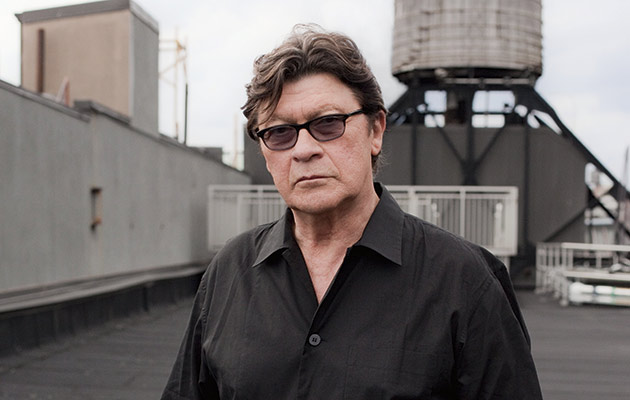In his 52-year career as songwriter, Band leader and, according to Bob Dylan, “mathematical guitar genius”, Robbie Robertson has played his part in the evolution of American music. Aged just 16, in 1959 he joined Ronnie Hawkins’ backing group. The Hawks later conspired with the newly electric ...
THE BAND
The Band
CAPITOL, 1969. PRODUCED BY JOHN SIMON
From the sepia cover photo featuring the five extravagantly hirsute musicians to the closing majesty of “King Harvest”, The Band’s second album mints a new, mythical strain of North American music, uniting the past and present. Robertson’s finest set of songs is perfectly rendered by a seamless unit who can apparently play and sing anything.
I was hired by Ronnie Hawkins to be in The Hawks at 16 because of two songs I wrote [“Hey Boba Lu” and “Someone Like You”] when I was 15, but everything at that time was written overnight and I was never happy with that process. On this record I finally felt like I could really concentrate on my writing, and when songs were written I could bring them to everyone and we would learn them at our own speed. Before, I never had that opportunity. It always seemed we were in someone’s way or making too much noise. The lyrics for songs like “The Night They Drove Old Dixie Down” and “King Harvest” stemmed from my experience of going from my home in Canada directly to the Mississippi Delta to join Ronnie Hawkins and The Hawks. This is where music just grew out of the ground and where all the music I loved came from, and I was right in the middle of it. I was so young, I was just a kid and it made such a huge impression on me that I wanted to write about it. I was so overwhelmed at that age by the South. It had a profound effect on me, going to the Holy Land of rock’n’roll, and it came out in my songwriting years later. I was storing up images and the sounds and places. When it was time to go into my trunk of ideas it was filled with that kind of stuff.
Musically, we’d been playing together for eight years before we made The Band. We’d been out there gathering musicality and experiencing amazing music from the Mississippi Delta to Canada, absorbing all these different elements, from mountain music to gospel, blues, jazz, classical and country. Everything. We had sprinklings from all of these influences and we finally just threw them all in a big pot and stirred it up. It was a new musical gumbo. You can’t over-think these things, but when you’re making music it’s good to think that something may have a timeless quality, and people tell me this album has. With The Band I was very much anti-trends. If something was “happening”, I would often lean in a different direction. You didn’t want to get caught up in the bandwagon – no pun intended!
________________________
BOB DYLAN & THE BAND
Before The Flood
ASYLUM/ISLAND, 1974. PRODUCED BY BOB DYLAN, THE BAND
A punchy double live album documenting Dylan and The Band’s return to touring for the first time since 1966. Mostly recorded at Los Angeles Forum, it features eight songs performed by The Band as well as 10 tracks where they back Dylan.
http://www.youtube.com/watch?v=gL8C4zIMZRM
It was the opposite of 1966. This time everyone was acting like, “No, no, we knew all along this was great.” Ha, isn’t it interesting? We didn’t change anything, the world changed. I had a really good time on that tour, it was more relaxed. At this point we knew people were going to embrace it and so there were different kinds of concerns. We were just trying to play the music as well as we could, there was nothing else at stake. Technology had changed: you could hear everything better, it wasn’t just a big wall of noise, and we were more adept at figuring out how to play the songs with more skill, so it came together in a different way. There was something very powerful about the way we played those songs with Bob – it was like a machine almost. In the early days we were just learning that, and although it had its own thing going it didn’t have quite the same combustion. We recorded a few dates and what’s on the album is just what we thought sounded the best.



